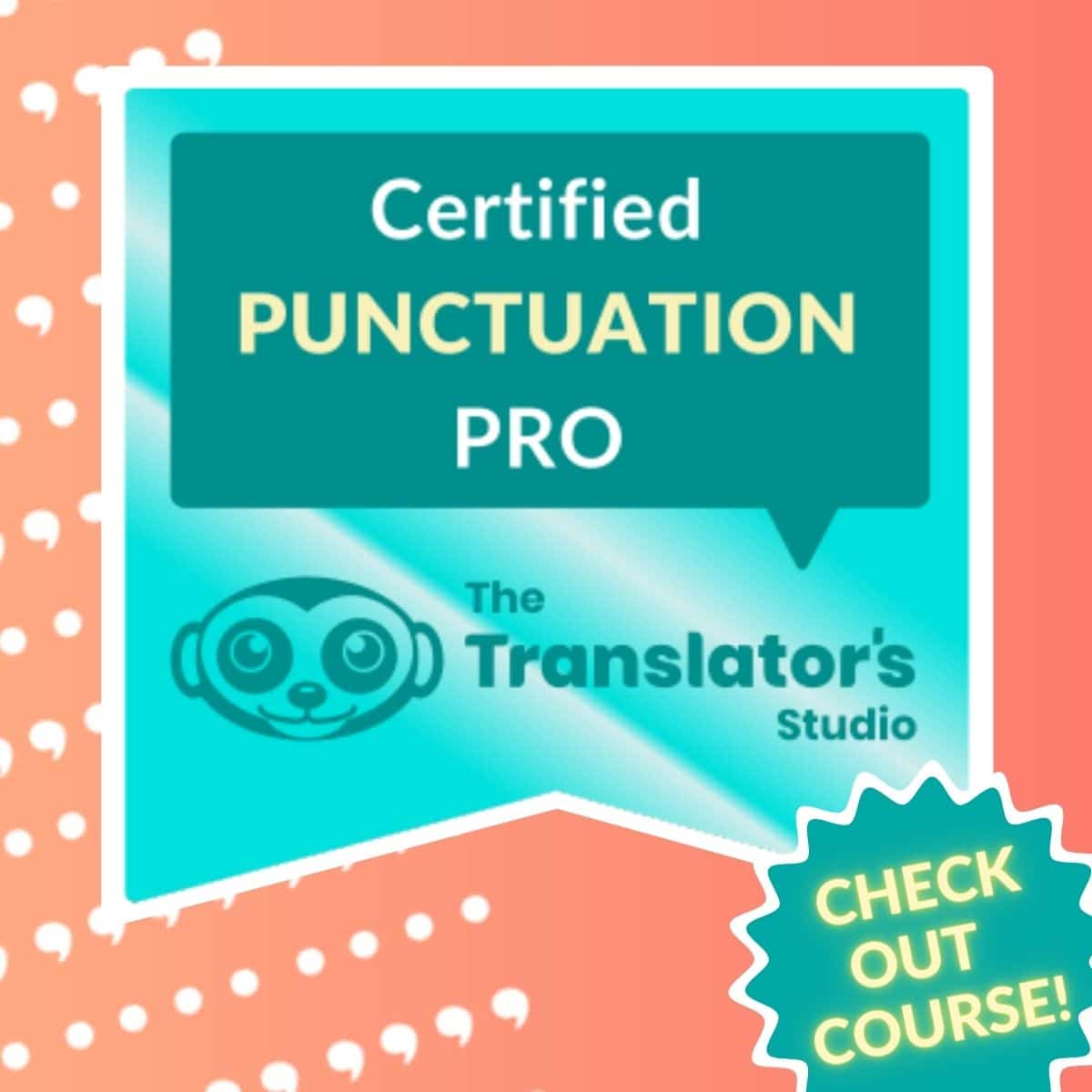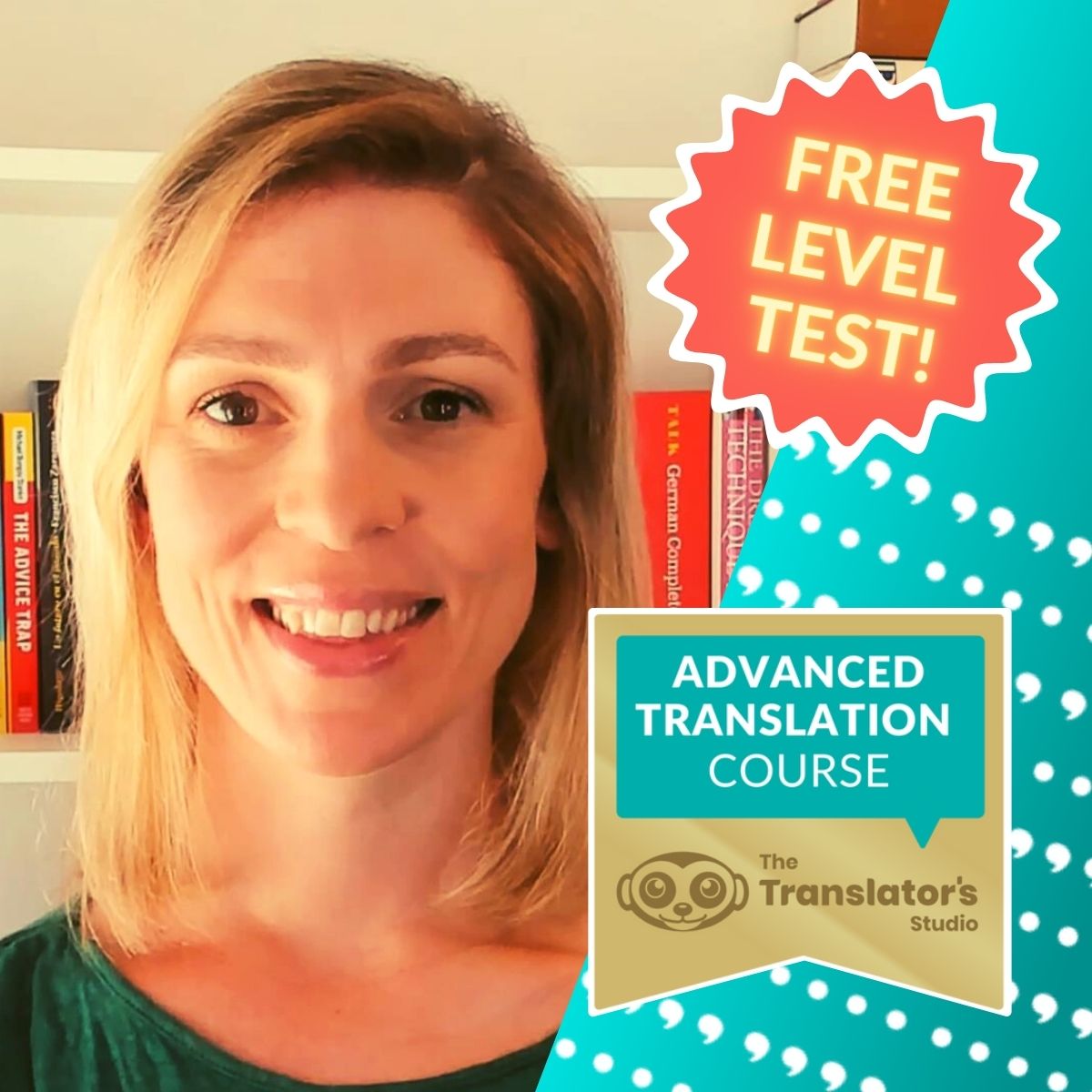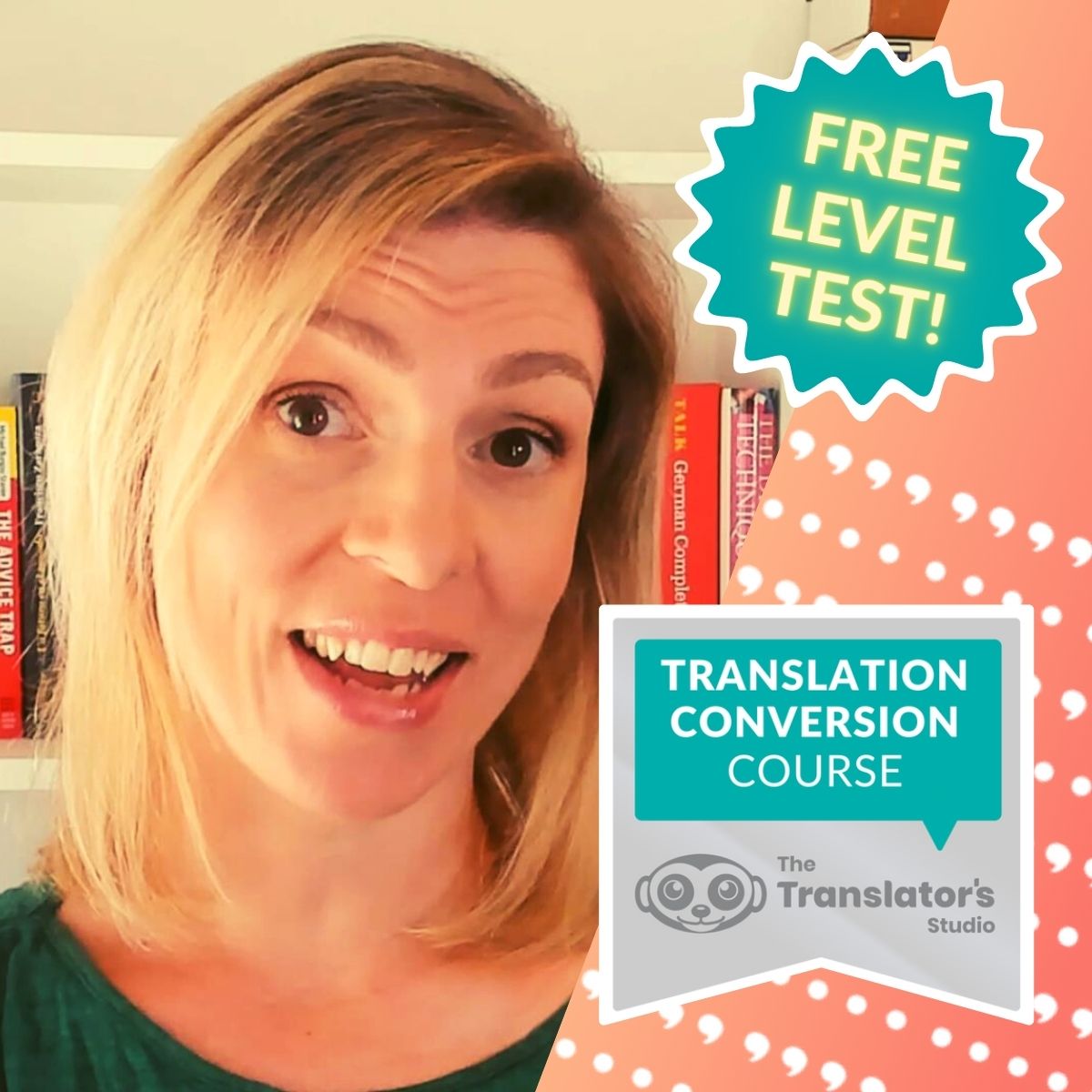Tired of not getting a response when you send your CV or resume to a potential client? If you’re a freelance translator, it’s essential to sell yourself in the translator cover letter.
Writing a cover email for your CV is easy when you have cover letter examples. This article contains tips and a translator cover letter sample to help you get more job interviews. You’ll find a cover letter template at the end.

DISCLOSURE: We sometimes review or link to products and services we think you might find helpful. Wherever possible we use referral links. This means if you click one of the links and make a purchase, we may receive a small commission or other compensation.
The Translator’s Studio gets lots of CVs from translators. I’m always surprised when the freelance translator doesn’t start by introducing themselves through a professional cover letter. When this happens, I delete the email because I don’t trust the attachment.
To get interviews and job offers, a freelancer must sell themselves in the cover email.
When I need to outsource to a new colleague, I want to build a relationship with them. If all the translator writes in the cover letter is “see my CV attached”, then I feel like writing back “why would I bother?”
Translator cover letter example
Even if you’re an experienced translator, it’s worth investing time in properly preparing your standard sample cover letter and some templates for when you want to send out your CV.
This will save you a lot of time and help you avoid forgetting the job skills you want to include. These cover letter samples should be adaptable to different translation agencies and jobs. Below, you’ll find lots of cover letter tips. At the end of the article, there’s a translator cover letter sample.
Pssst … you need to know this about translation hiring managers
– Translation agency hiring managers get a lot of CVs from translators looking for the next dream job. The hiring manager won’t have much time or desire to wade through them.
– Hiring managers need to tick boxes. If the translator cover letter ticks them, then they’re more likely to look at the CV.
– Be as brief as possible in your cover email and focus on the problems you can solve for the hiring manager. What key information does the project manager need about your job skills?
– First impressions count. The hiring manager may reject you as a possible candidate based on your cover letter. In fact, just the subject line of your email can put them off. Make sure you proofread carefully and check out the translator cover letter example below.
Get a certificate in punctuation!
- Learn punctuation fast
- Get confident
- Build up your CV to impress clients
How long should your CV cover letter be?
If you’re a freelance translator sending a “cold” email to a translation agency with your CV, keep the body of the email under 180 words. But if you’re sending in a job application for a translator position in house, you can write a bit more, up to 250 words. If you’d prefer to think in paragraphs, the UK careers service suggests three to five paragraphs.
If you’re quoting for a translation job published on an online forum, stay under 120 words.
A resume cover email that’s too short will be ineffective. It gives the impression you’re unconscientious, which is negative in a translator. As I hinted at above, if you don’t sell yourself in the translator cover letter, your reader won’t be enticed to open your CV. They’ll move on to the next email instead.
Remember that the translation agency hiring manager doesn’t know you. So, your cover letter has to get the reader’s attention. Focus on the most important information to get them interested in you and your job skills.
What we think: our top pick to learn how to write marketing content.
What key information does the hiring manager want to see in the cover email?
– Your language combination(s). Include this in the email subject line, e.g. ES>EN.
– Your most relevant qualifications. Make reference to the DipTrans or your translation degree in the subject line, if you have one or both.
– Your translation specialisations, job skills and relevant experience if you’re quoting for a specific job.
– Your translation and editing rates and whether or not they include VAT.
– How to contact you. Best put after your name in the email signature.
Writing a translator cover letter for your CV is easy when you know how.
What information ticks boxes for a translation agency?
– Translation-related qualifications and language-related qualifications like the DipTrans, a master’s degree or a C2 language proficiency certificate.
- Become a more successful translator
- Learn fast with extremely detailed feedback
- Prepare to pass the CIOL DipTrans exam
- Get your advanced translation certificate
– Clear translation specialisation(s) supported by work experience and qualifications.
– Summarised information on experience that is relevant to the agency or to a specific job. Don’t have much experience? Check out these articles on volunteering for TED and Translators Without Borders.
– Information on the CAT tools you use.
– Information on any advanced software knowledge.
– Confirming you’re registered self-employed, i.e. that you can issue legal invoices. Your location may also make a difference.
What can you write in the cover letter to make the hiring manager like you?
– Write to them by name (spelled correctly), as opposed to using an old-fashioned formula like “Dear Sir/Madam” or an overly informal “Hello”.
– Show membership of professional associations.
– Be honest about the services you can offer.
– Thank the project manager for their time.
– Include a link to your strongest online presence, reviews and/or references.
– Make sure there are no grammar or punctuation mistakes in your email.
Get a certificate in punctuation!
- Learn punctuation fast
- Get confident
- Build up your CV to impress clients
Finally, help the hiring manager get to know you by interacting with them on social networks before you send them your translator cover letter and resume. And make sure you respond quickly if they write back to you.
What parts of the cover email will make the hiring manager feel negatively towards you?
– Making spelling and grammar mistakes. Get your cover letter template and CV checked by a native speaker.
– Being excessively formal or rudely brief in the cover email. If English is your second language, use our translator cover letter sample below to help you.
– Saying you have skills and specialisations without anything to back up your claims.
– Requesting rates that aren’t market rates. This suggests you don’t know the market, so probably don’t have much experience.
– Claiming you’re competent to translate bilingually without professional qualifications, references or samples to back that claim up for both of your languages. This is because most bilingual translators have a dominant language.
– A final paragraph that sounds desperate.
Dos for a CV cover email to a translation agency
– Do refer to the rates you give as your “standard” rates. This implies flexibility exists depending on difficulty and project size. There are also times when you may need to add surcharges, such as when pricing PDFs for translation.
– Do say your translation rates are “job dependent”. Ideally, each job should be quoted independently. This gives you room to go up and down in price. See our article on pricing pitfalls for more tips.
– Do include bullet points to make the cover email more succinct. This is especially useful if you’re quoting for a specific job advertised online. See a cover letter example at the end of this section.
– Do say you have references, work samples and copies of your certificates available.
– Do tell the project manager if you’re prepared to work on weekends. But consider a surcharge. Read this detailed article about translation surcharges.
– Do end your cover letter with a question (known as a call to action), to encourage a response.
If all the translator writes in the cover letter is “see my CV attached” then I feel like writing back “why would I bother?”
Don’ts for a cover email to a translation agency
– Don’t say your rates are “negotiable” without qualifying when you’ll negotiate (e.g. easy texts, high volume). Otherwise, you may as well say you’ll reduce your price if they ask you.
– Don’t write too much. They’ll take one look at the cover letter and won’t want to read it.
– Don’t gush about how much you’d like to work with them. It can come across as desperate.
– Don’t offer to do a free test. Let the agency ask if they want this. Then negotiate a fair rate for your time. More about testing for free.
– Don’t write about irrelevant work experience as the translation agency won’t be interested in that.
Translator cover letter sample for freelancers sending out their CVs or resumes
Below are some email cover letter templates for a freelance translator. You’ll need to adapt them to your experience and background so treat them like a cover letter builder. Remember to focus on the positive and add/delete sections of the cover emails as required.
Cover letter example template for sending your CV or resume to an agency
Dear [contact’s first name spelled correctly],
Please accept my CV in application to collaborate with your company as a freelance XXX to XXX translator.
I am a native XX speaker, registered self-employed in XXX and have been working as a professional translator full-time since XXX. My qualifications include: XXX.
I specialise in XXX. I see from your website that your company specialises in XXX. I have translated XXX words for this industry including: XXX. For references, please see [link to online references].
My standard rate is XX + VAT per source word for translation, XX + VAT for post-editing and XX + VAT per hour for review. I have flexible working/contact hours and am available for weekend work. I have [CAT tool + version].
Is there any further information I can offer you?
Many thanks for your time.
Kind regards,
[Name] / [Letters (MA, BA, etc.)] / [Occupation] / [email / phone / website or online profile]
Membership logos
Sample cover letter for an email response to an online job advert
Hello [Contact’s name spelled correctly],
Please accept my quote for the XXX project advertised on XXX. I’m sure you’ll have lots of CVs to wade through, so here’s a quick summary of my credentials.
Experienced [Languages] translator, registered self-employed.
List of most-relevant qualifications.
Specific experience in XXX.
[CAT tool + version].
Price XX per source word + VAT, payment on XX days. Delivery by [delivery date]. I would ask to see the text for translation before I confirm this quote.
Please see my CV (attached) and my references here: [URL]
I hope to have the opportunity to work with you. Is there any further information you need?
Best,
[Name] / [Letters (MA, BA, etc.)] / [Occupation] / [email / phone / website or online profile]
Membership logos
Get our newsletter!
If you’ve found this article useful then sign up for our monthly newsletter in the column to the right. If you want to strengthen your CV with a translation qualification, check out our translation courses and do your free translation level test.
- Become a confident professional translator
- Learn fast with our extremely detailed feedback
- Prepare for the CertTrans exam
- Get your translation certificate












Useful advice for applying to translation agencies and for translation jobs in general. Thank you!
Very Useful and informative article.
Great article, thank you! I have a question – how do you normally address your email to if you can’t find a suitable contact to direct it to? I always do a bit of digging to try and find the name of Head of HR of a Senior Project Manager, but sometimes even LinkedIn doesn’t help! When this happens, I direct it to the name of the company so that at least it doesn’t look like a copy and paste – but never sure if that’s the best tactic!
Hello Fuschia, thanks for this question. I think it’s really important to use the name, if you can, and agree with your process of trying to find a contact name through the website or LinkedIn. If I still don’t know the person’s name, I normally start “Good morning,/Good afternoon,/Good day,”. I may then add the name of the company in the opening paragraph, to try to show them that I know who I’m writing to. I’ve observed that translators who write to us will tend towards being more or less formal depending on what they’re used to doing in their source culture. In English, at least, I personally think that “Dear Sir/Madam,” or “Dear Mr/Ms . . .,” are unnecessarily formal when we’re talking about a freelancer-agency collaboration. Though this may not be the case for other languages. For me, “Hello/Hi” may risk being too informal starting out, and non-standard openings like “Greetings” sound odd and immediately put me off any possible collaboration.
Very useful Gwenydd! I was doing most of these, but it helps me to improve my cover letter for sure! 🙂 Thanks a lot!
That’s great, Carolina. Thanks for commenting!
Hi,
Contact details are so important for us. We receive an awful lot of fake CVs and sometimes a phone call is the only way to determine if a CV is real. We also want to be able to contact the translators swiftly and sometimes it’s easier to use Skype/Whatsapp.
Thanks for highlighting this, Val.
Hi Gwenydd, great tips! I have tried both “with rates” and “without rates” methods and found no much difference in the response rate. If interested in your services/combination, the agency will contact you to discuss the rates and other details. However, when you apply for a specific job (at Proz), there is no way to skip the rates.
Thanks for commenting and sharing your experiences, Oleg. Yes, you have to include a rate on ProZ, which can be inconvenient because sometimes there isn’t enough information in the job ad to know what to quote. When this happens, I include a note in the box underneath saying I need to see the text to confirm the rate, or something along those lines.
I’m not sure about other countries, but in Poland you absolutely need to attach a clause to your CV or cover letter, allowing for the processing of your personal data for recruitment purposes. Ever since GDPR entered into force, everyone’s been freaking out about personal data protection and many agencies won’t even look at the application if that clause is missing, fearing legal consequences.
This is really good advice, Martyna. Thanks for adding this!